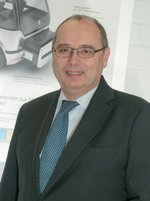
Engineering
The Faculty of Engineering at the University of Duisburg-Essen (UDE) is made up of four departments, Civil Engineering, Electrical Engineering and Information Technology, Computer and Cognitive Sciences, and Mechanical and Process Engineering. Together they cover a unique breadth of research themes and provide teaching at the highest level. Numerous Bachelor’s and Master’s programmes with an international orientation currently attract around 8700 young people from 105 different countries to some 80 departmental chairs and institutes in the faculty, making it one of the largest in Germany.
Supported by seven affiliated and collaborating institutes, the faculty quickly and efficiently translates the results of its research with partners in business and industry into practice. It is not only for this reason that the engineers at the University of Duisburg-Essen have an excellent reputation worldwide: they also occupy leading positions in both nanotechnology and research into combustion processes. Automotive engineering, energy, environmental process engineering and solid state electronics are other fields in which they perform top-level research. The same is true of the optimization of communications, radio and radar systems, energy grids, optoelectronics and interactive media systems. Within the faculty, Ship Technology and Ocean Engineering is emerging as one of the largest university institutes of its kind in Germany. Industrial Engineering produces graduates with a multitude of skills at the interface between engineering and management, particularly for the automotive industry, while Civil Engineering holds a leading position in the CHE ranking.
At the UDE, cognitive scientists and psychologists also belong to the Faculty of Engineering:
no matter what technical advances are made, ultimately it is humans who control devices and programme machines, so human-machine interaction continues to be an important part of research here.
Another noteworthy feature is the percentage of women in the faculty, which at 24 % is unusually high and partly the result of special information and events specifically directed at female school students.

